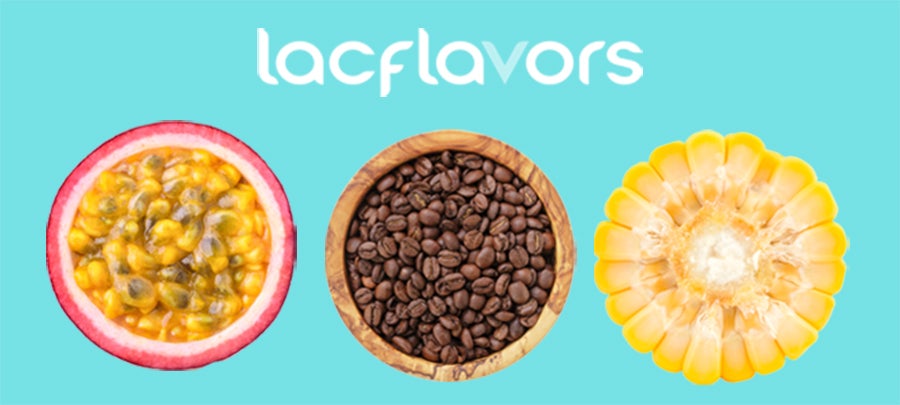By 2050, the production of food will need to grow about 70% to meet the demand of more than 9 billion people from around the world. And as one of the largest net global exporters of food, Latin America and the Caribbean (LAC) will have immense opportunities to tap this growing market.
LAC is expected to average a 2.6% food and beverage industry growth from 2016-2021, ahead of Europe and North America, and shy of projections in the 3-4% range for Africa, Asia and the Middle East.
Moreover, industry growth in Latin America is expected to outpace global averages between 2018-2030 in poultry (2.9% growth), seafood (2.5%), and cooking ingredients (3.5%). And South and Central America and the Caribbean could expand its 12% share of global food and agriculture exports.
But will LAC businesses keep up with the complexities of e-commerce, the digital transformation and global supply chains? And reinvent their products and business to meet the needs of more demanding consumers with increasing purchasing power?
Stepping up the region’s food and beverage production to meet the market’s demands will require small and medium enterprises (SMEs) to adopt new technologies and to innovate. Here is a sample of the type of innovations being led by some companies in LAC and around the world.
Online platforms connecting buyers and sellers
Several new electronic platforms that connect buyers and sellers help producers find market opportunities, and reduce costs and the role of middlemen in the supply chain.
ConnectAmericas, the first social network for the internationalization of SMEs in the Americas, is an example of such an online platform, with an active food and beverage business community in LAC.
Other examples include Produce Pay, a startup with $14 million in funding developed by a Mexican entrepreneur that provides immediate-access financing for farmers and distributors in countries like Mexico, Honduras, Chile and the United States.
FarmLead is a similar online marketplace for the grain market, which significantly reduces broker fees. And the Farmers Business Network is a database service providing access to seed prices, yields, and marketing information.
Managing inventory and order fulfillment
To manage the inventory and order fulfillment complexities that arise from rapid e-commerce growth, high-tech startups that leverage advances in robotics have emerged.
Commonsense Robotics uses robots to fulfill online grocery orders in micro-fulfillment centers close to urban areas. And Takeoff, founded by a Venezuelan and an Argentine, creates tech-infused micro-fulfillment centers that partner with retailers for online grocery pick-up in under one hour.
The secure digital tracking capabilities of blockchain are also helping to track delicate commodities and ensure food safety throughout the supply chain. For instance, FoodLogiQ secured $19.8 million in financing for a blockchain pilot using tracing technology. And 7,000 food companies around the world (including Whole Foods) now benefit from supply chain analytics ensuring their products’ safety.
Innovations in AgTech
A wide array of innovations in AgTech are similarly producing dividends in the field – increasing yields, extending shelf life, and cutting costs. The market has taken note, and AgTech funding through investment or acquisition increased by 32% in 2017 to $2.6 billion.
Among Forbes’ 25 Most Innovative AgTech Startups of 2018 are a vineyard management company tracking field conditions and grape maturity to maximize yields; enterprises using machine learning to identify microbes that promote higher crop yields or sequence genomes to identify harmful pathogens in the soil; and various technologies to reduce waste.
And in Chile, the startup The NotCo uses algorithms and artificial intelligence (AI) analyzing plant-based foods on a molecular level to re-create the flavors and textures of traditional dairy products like mayo, ice cream and milk. The company, founded by Matias Muchnick, secured this year a 30 million investment from Amazon founder Jeff Bezos. This is just the beginning. AI in the food and beverage market is expected to register annual growth of over 65.3% from 2019 – 2024.
Other types of innovation in food and beverages
Not all innovation has to be technologically-driven. To compete in international markets, SMEs can make big strides by introducing a culture of innovation, adding value to their products, improving packaging, diversifying their products or specializing in organic and healthy foods, among other strategies.
In Cali, Colombia, food producer Del Alba has reinvented itself several times in 20 years, evolving from a traditional agro-business to a company specialized in the healthy snacks segment. In recent years, it has launched innovate products for the Colombian market, ranging from quinoa covered with chocolate to macadamia ice cream. It also exports high-quality macadamia to 13 countries.
“Innovation is what oxygenates us as a brand”, says Juliana Dorronsoro, Vice President of Marketing and Sales of Del Alba.
Cali is also home to Harinera del Valle, a large, well-known producer of wheat flour, pasta and canola oil that has been around for 65 years. Ten years ago, the company created an innovation department, which has helped propel creativity internally and experiment continuously with new products. One of them is the award-winning whole-grain tortillas with oat fiber. Today, Harinera del Valle exports its Doñarepa flagship product to 12 countries ranging from Costa Rica to Spain.
LAC Flavors 2019
Given the importance of trade, the Inter-American Development Bank (IDB) promotes the internationalization of LAC enterprises through its Integration and Trade Sector.
As part of this work, the IDB holds every year LAC Flavors, one of the key food and beverages business forums in the region, connecting hundreds of LAC exporters with buyers/importers from around the world.
Over the past 10 years, LAC Flavors generated almost $1 billion in actual and expected deals following more than 17,000 one-on-one matchmaking business meetings held during these events.
LAC Flavors 2019 is taking place in Cali, on September 4th and 5th. This edition is organized by the IDB, through ConnectAmericas, in collaboration with ProColombia, the Colombian government’s export promotion agency, Colombia Productiva, Agro Exporta, the Government of Valle del Cauca, the Municipality of Santiago de Cali, and the Cali Chamber of Commerce.


Leave a Reply